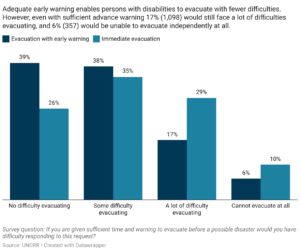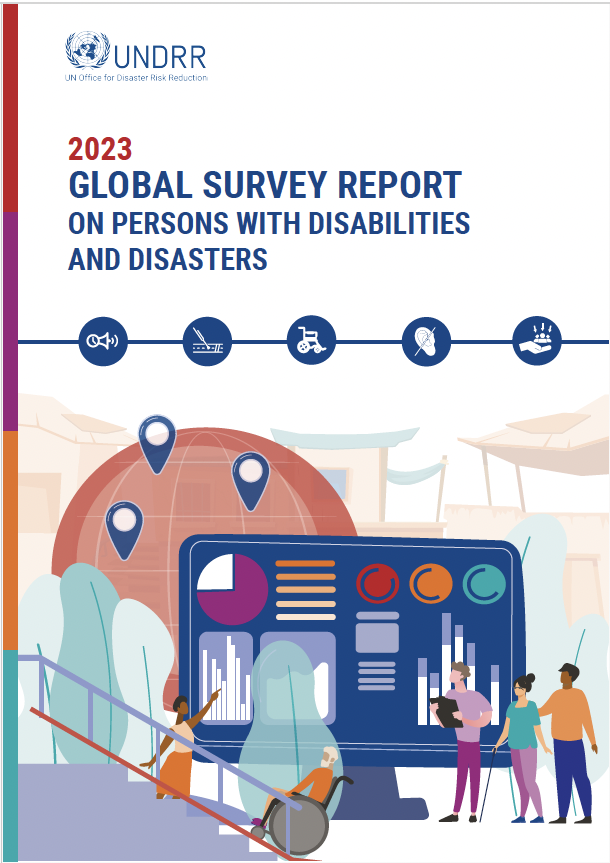The world Failures to protect persons with disabilities (PWD) from disasters:UNDRR
Persons with disabilities constitute 16% of the world’s population, with 80% living in the Global South. They are frequently the most affected by natural hazards, climate-induced disasters, and global health emergencies.
2023 Global Survey on Persons with Disabilities and Disasters released by UNDRR:

To understand the progress made in disability inclusion in DRR, the UN Office for Disaster Risk Reduction (UNDRR) conducted the 2023 Global Survey on Persons with Disabilities and Disasters as a follow-up to the 2013 Global Survey. The survey aimed to identify if persons with disabilities are prepared for potential disasters, whether early warning and risk information is available and accessible.
The survey was conducted between January and March 2023 and resulted in a total of 6,342 responses from 132 countries. For comparison, the 2013 survey resulted in 5,717 responses from 137 countries.
The results show limited progress in disability inclusion over the past 10 years, with no significant differences across the regions.
Key results of 2023 Global Survey on Persons with Disabilities and Disasters
- 84% (5,322) of persons with disabilities reported not having a personal preparedness plan for disasters. This was less than in the 2013 survey.

- Adequate early warning enables persons with disabilities to evacuate with fewer difficulties. However, even with sufficient advance warning, 17 per cent (1,098) would still face a lot of difficulties evacuating, and 6 per cent (357) would be unable to evacuate independently at all.

- 56 per cent (3,549) reported not being aware of or not having access to disaster risk information in accessible formats in their communities.

- Awareness of DRR plans remains low among persons with disabilities, with only 11 per cent (708) reporting being aware of DRR plans at national level and 14 per cent (897) at subnational level.
- Only 8 per cent (488) reported that local DRR plans addressed the specific needs of persons with disabilities.
- 86 per cent (5,484) of persons with disabilities reported no participation in community-level DRR decision-making and planning. A total of 57 per cent (3,634) indicated they would be willing to participate.
- 75 per cent (4,727) reported not having, or not being aware of, any mechanism to ensure the participation of persons with disabilities in community DRR decision-making. Accessibility issues, attitudinal and other barriers continue to limit participation.
- 16 per cent (1,040) reported there are now dedicated leadership roles for disability inclusion in governance structures. However, personnel with disability expertise are often not assigned to these roles.
